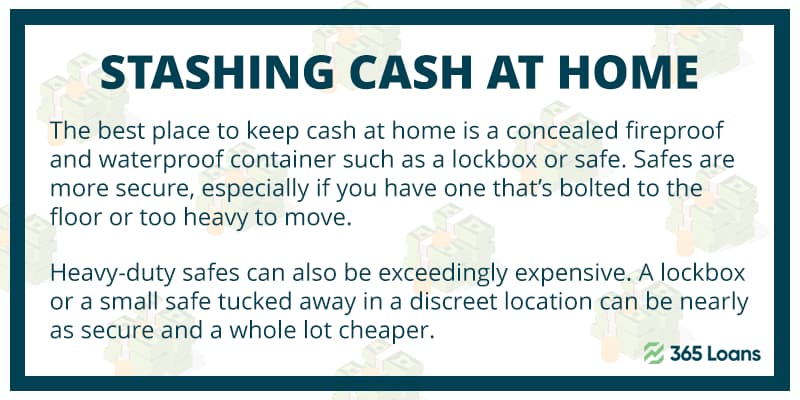Digital payment platforms such as PayPal, Revolut, and Stripe have altered how we use and store actual cash. Most people rarely have cash on them, let alone at home. However, there are always unexpected situations that necessitate having some cash on hand, especially in the case of catastrophes ranging from severe weather to power shortages. If you cannot access your digital money or your banking system is down, having cash on hand can help you obtain gas, food, and pharmaceuticals.
But.
How much cash should you keep on hand?
Coming up with a definite answer pushed us to go further in sharing personal opinions and acquiring those of professionals. So, after a brief discussion with a dozen financial advisors and people with at least $100K in their banks, the leading opinions ranged from carrying as much cash as you intend to spend during the day to having less than $100 in your wallet.
It is crucial to note that each shared opinion is based on a particular lifestyle, so you should consider the additional factors that come with each option below.
Option 1: Sufficient to cover emergency expenses
Yasmin Purnell, a personal finance expert and the founder of the money website The Wallet Moth, advised that you maintain enough cash on hand in case of an emergency that requires you to access temporary housing, food and drink, gasoline, and medication.

Alternatively, instead of keeping cash for emergencies, you might stack whatever products you could need in any possible emergency in your home. For example, buy frozen food instead of saving $500 for food and store it in the refrigerator. Take it even further and purchase an emergency pack instead of saving money for hospital fees.
Option 2: At least a day’s worth of expenses
According to Brenton Harrison, a CFP at Henderson Financial Group in Tennessee, saving at least a day’s worth of spending in cash is a good idea.
While this will vary depending on your daily spending patterns, Harrison suggests considering how much money you rely on to get through your typical 24 hours. This could include commuting charges like highway tolls or parking fees. Also, some establishments, such as convenience stores and coffee shops, are still cash-only or refuse to accept certain credit cards.

Option 3: Less than $100
Cash was once king, but in today’s infinite digital payment environment, cash is losing its charm.
Having some cash on hand is helpful, but the minimalist financial gurus advise keeping your wallet’s cash balance at or below $100, so it may be used as a budgeting tool. In addition, you get the psychological lift of having that much money in your wallet, which prompts you to reevaluate your spending.
In a nutshell
There are not enough solid reasons to store considerable sums of cash at home in today’s modern world of ubiquitous payment systems. Maintain only what you need because strange as it may seem, the currency loses value over time. Money kept in a bank preserves its value and, on occasion, even increases in value, unlike cash in circulation, which depreciates with time.

Should you decide to keep cash at home, you will want to think about the safety of that amount, no matter how much. Saving money in the bank puts all the pressure on preserving the cash in the bank. But, on the other hand, keeping money at home means the burden of finding safe havens, for it lies with you. For example, you could lose a sizable sum of money in a matter of seconds if a fire or flood damages your property.







